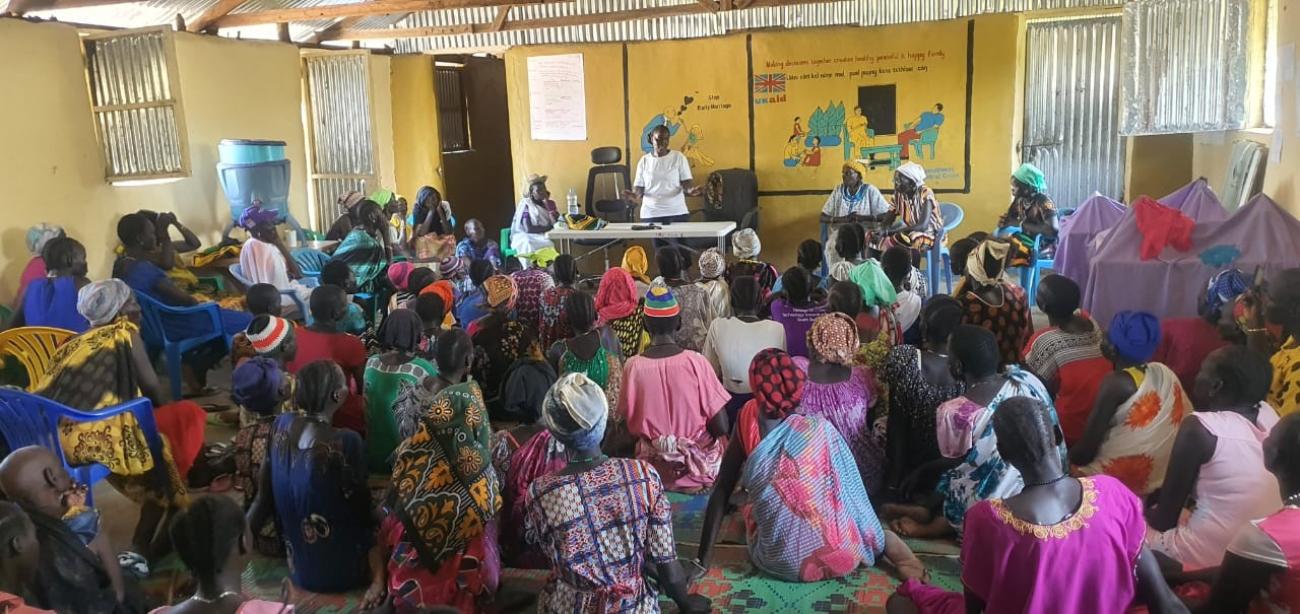"Before, when our husbands beat us, we would beat our children. Sometimes we would drink poison."
Angelina Aweng pauses, then continues with quiet strength: "Today, we go to the women centers. The centers have empowered us to be more in control."
The Wunlit Triangle, which spans three states (Lakes, Warrap, and Unity) has a complicated history. In 1999, the region hosted the Wunlit Peace Conference, which helped bring an end to Sudan's second civil war in 2005. However, in 2013, new fighting broke out between the Nuer and Dinka tribes. This violence took many forms - cattle theft, revengeful killings, and widespread attacks on women and girls. The region's once-strong social bonds were torn apart.
Through the United Nations Secretary General’s Peacebuilding Fund (PBF) project on challenging harmful patriarchal norms, SaferWorld established Women and Girl Friendly Safe Spaces (WGFSS). These centers have become sanctuaries across Gogrial East, Tonj North, Rumbek East, and Cueibet counties.
"Cases of suicide among women and girls have reduced since the establishment of the women center," shares a Deputy Youth Leader. "Here, women discuss issues, advise each other, and counsel each other using the training on mental health that we had in the center."
The safe spaces have supported over 175 female survivors of gender-based violence through peer support groups offering vital psychosocial first aid. Additionally, peace forums have successfully brought together young people who were once fighters, helping them reconcile their differences.
In Malakal, tensions between Chollo and Nuer communities have begun to heal. In Tonj South County, dialogue has resulted in the return of over 96 herds of cattle to their rightful owners.
Rebecca Diing's story is historical and shows the deeper changes taking root. When her husband died, relatives seized her cattle, a standard practice in a society where women couldn't own property. However, the local Paramount Chief intervened, ordering the return of Rebecca's cattle. This marked the first time a woman in Lietnhom retained property rights.
"Women should own land, cows and any other properties just like men do," the Chief declared. "If women were not that important to the community, these organizations wouldn't have come to open a WGFS center for them."
The women of the Wunlit Triangle have transformed their lives, moving from despair to strength, from powerlessness to possibility, and from being denied property ownership to securing their rights. Dignity has been restored and hope for even the future generations has been restored.
Through community discussions and safe spaces, they are steadily rebuilding their sense of self-worth. The women's centers have become important community hubs where peace, equality, and recovery are part of everyday life.







